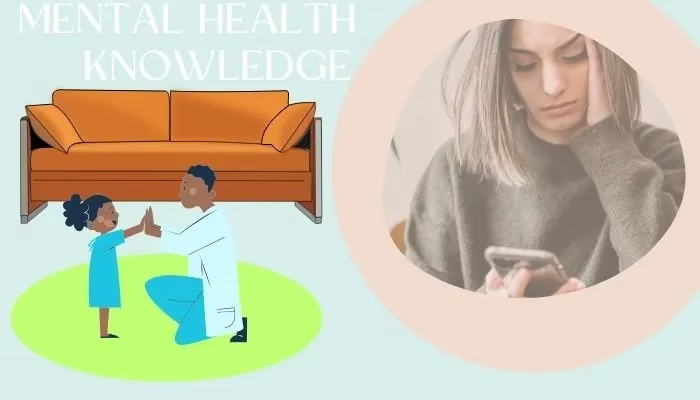
In the past few years, mental health management through psychotropic therapy has won great attention among examiner, therapists, and people seeking alternatives to habitual treatments. Once dismissed due to stigma, psychotropics like psilocybin and MDMA are now being reevaluated for their potential to communicate conditions such as stress, and anxiety. As society grows more open to creative healing methods, interest in this changing outlook continues to rise.
Understanding Mental Health Management through Psychotropic Therapy
Mental health management through psychotropic therapy combines the use of psychoactive matter with guided therapeutic discussion. This approach allows people to access ground down emotions and past trauma in ways that conventional talk therapy may not.
- Psilocybin and LSD are leading matter in medical use
- Sessions take place in controlled therapeutic environments
- Each experience includes preparation, the psychotropic psychotropic journey, and post-session integration
- Therapy want to increase emotional insight and Brain development
The growing adoption of psychotropic treatment shows a broader shift in how emotional well-being is thought and communicated.
Scientific Evidence Supporting Mental Health
Research strongly helps mental health management through psychotropic therapy, specially for those people who do not show conventional psychiatric treatments. Medical checks have provided a solid substructure for its growing credibility.
- Studies from Johns Hopkins show psilocybin decrease depressive problems
- Methylenedioxymethamphetamine studies well-known shows MDMA’s success in PTSD treatment
- Participants report profound emotional breakthroughs and clarity
- Brain scans reveal heightened connectivity and improved emotional processing
Such data confirm that psychedelic therapy offers more than temporary relief—it enables deep psychological change.
How psychotropic Therapy Works
The process of mental health management through psychotropic therapy is carefully structured. Patients go through preparation, supervised psychedelic sessions, and integration support.
- Sessions begin with goal-setting and emotional readiness counseling
- Trained professionals guide and monitor the psychedelic experience
- Post-session integration helps individuals process and apply insights
- Emotional safety and trauma-informed care are prioritized throughout
This method combines early practices with modern brain development to deliver lasting emotional healing.
Conditions Treated by psychotropic Therapy
Although not a universal solution, mental health management through psychotropic therapy is especially effective for a range of serious psychiatric conditions. Personalized care is necessary to its victory.
- Treatment-resistant depression came back well to psychedelic interference
- Post-Traumatic Stress Disorder, mostly among oldstager and misuse survivors
- Anxiety related to terminal illnesses or existential distress
- Addictive habits including alcohol and substance misuse
These successes provide new hope to those who have to fight with regular treatments.
Benefits of Mental Health Management through psychotropic Therapy
One of the most gripping facets of mental health management through psychotropic therapy is its ability to deliver quick, reframing results. Many outline noticeable improvement after only some discussion.
- Quickened emotional purity and self-analysis
- Decrease signs of anxiety and mood problems
- Improved personal connection and communication
- Deep, lasting psychological transformation
This efficiency stands in contrast to years of conventional talk therapy or daily medication.
Risks and Challenges in Mental Health
Despite its advantages, mental health management through psychotropic therapy is not without dangers. Careful rules and professional direction are necessary for its safe use.
- Emotional overload can occur without proper preparation
- Risk of misuse in recreational or non-clinical settings
- Legal and cultural barriers limit access in many regions
- Requires well-trained, certified professionals for ethical care
To ensure patient well-being, a cautious and regulated approach is non-negotiable.
Legal Landscape through psychotropic Therapy
The legal status of mental health management through psychotropic therapy is evolving rapidly around the globe. As medical proof grows, so does the push for policy exchange.
- Oregon leads the U.S. in allowing psilocybin treatment
- Canada permits psychedelic use for compassionate medical cases
- Australia has approved MDMA and psilocybin prescriptions
- European power are pushed medical testing and acceptable review
Such progress points to a future where therapeutic psychedelics are more widely accessible.
Psychotropic Therapy vs Traditional
Mental management through psychotropic therapy offers a more immersive and potentially transformative alternative to conventional psychiatric approaches.
- Traditional methods often require years of gradual talk therapy
- Psychedelic therapy delivers deep breakthroughs in fewer sessions
- Medications may additionally control signs, while psychedelics help with basic issues
- Integrates psychological, pharmacological, and spiritual dimensions
This fusion presents a new model for understanding and treating emotional distress.
Global Perspective on Mental Health Management
Countries across the globe are adopting different strategies for integrating mental health management through psychedelic therapy into healthcare systems.
- Switzerland has lawfully helped Psychotropic discussion after the 1980s
- The UK is increasing investment for studies and public knowledge
- Brazil includes traditional ayahuasca ceremonies in mental health care
- The U.S. . is moving closer to wide FDA permit and surety coverage
Such global shifts reflect a growing appreciation for therapeutic psychedelics in managing emotional health.
Prediction of Mental Health Management through psychotropic Treatment
The future of mental health management through psychedelic treatment looks increasingly promising as technology, education, and public perception continue to advance.
- AI equipment are better protection and personalizing treatment meeting
- More therapists are gaining certification in psychedelic care
- Stigma is fading as awareness and research expand
- Insurance coverage and institutional backing are improving gradually
Together, these improvements sign a new technology of integrative intellectual fitness care..
Conclusion: Mental Health Management through Psychotropic Therapy
In conclusion, mental health management through psychotropic therapy offers a groundbreaking technique to treating emotional and psychological disputes. By combining the deep insight of early plant medicines with current medical practice, this therapy brings new hope to those who have long suffered in silence. With continued research, responsible orders, and patient education, psychedelic therapy has the power to redefine how we manage mental health— kindly, completely, and effectively.
